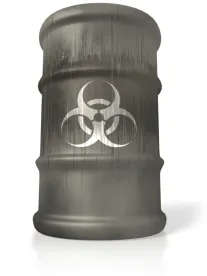On June 10, 2016, the Texas Commission on Environmental Quality (“TCEQ”) adopted amendments to its statewide hazardous waste rules to incorporate changes made by the U.S. Environmental Protection Agency (“EPA”) to the federal hazardous waste program under the Resource Conservation and Recovery Act (“RCRA”) (41 Tex. Reg. 4259, June 10, 2016). The revised rules are effective as of June 16, 2016.
Background
Under section 3006 of RCRA, EPA may authorize a qualified state to administer and enforce a hazardous waste program within the state in lieu of the federal program. State RCRA programs must always be at least as stringent as the federal requirements. EPA has authorized Texas to implement the RCRA hazardous waste program in the state. To maintain its RCRA authorization, Texas must adopt regulations to meet the minimum federal requirements.
The EPA published a final rule on January 13, 2015, revising the definition of solid waste for purposes of the federal hazardous waste regulatory program under RCRA (“2015 DSW Rule”) (80 Fed. Reg. 1694, Jan. 13, 2015). The EPA’s stated objective in promulgating the 2015 DSW Rule was to provide stronger protections against potential mismanagement of hazardous secondary materials intended for recycling and to establish a clear, uniform legitimate recycling standard for all hazardous secondary materials recycling to ensure that such materials are, in fact, legitimately recycled, rather than illegally disposed of. Authorized states have until July 1, 2016 to adopt regulations implementing the 2015 DSW Rule.
The new rules adopted by the TCEQ update several elements of the state’s hazardous waste program, most notably the definition of solid waste and the electronic manifest (“e-Manifest”) requirements.
Definition of Solid Waste
The definition of solid waste is a key element of the hazardous waste regulations promulgated by the EPA and authorized states such as Texas, since only solid wastes can be subject to regulation as hazardous wastes. Thus, if a hazardous secondary material is not classified as a solid waste, then it would not be regulated as a hazardous waste under RCRA or the Texas Solid Waste Disposal Act.
Mirroring EPA’s 2015 DSW Rule, the new rules adopted by the TCEQ exclude certain recycled and reclaimed hazardous secondary materials from the definition of solid waste. Specifically, the TCEQ has adopted the EPA’s generator-controlled exclusion, verified recycler exclusion and remanufacturing exclusion.
The generator-controlled exclusion excludes certain hazardous secondary materials (i.e., listed sludges, listed by-products, and spent materials) from the definition of solid waste when the materials are generated and legitimately reclaimed within the United States and its territories under the control of the generator (e.g., on-site, within the same company, toll manufacturing recycling). The verified recycler exclusion excludes hazardous secondary materials from the definition of solid waste when the materials are transferred from generators located in Texas to verified reclamation facilities in the United States and its territories. The remanufacturing exclusion excludes specified spent solvents from the definition of solid waste when the spent solvents are generated in Texas and regenerated in the United States and its territories.
These exclusions lessen the burden on industry and encourage re-use by allowing the legitimate recycling of hazardous secondary materials rather than regulating these valuable resources as hazardous waste.
In order to qualify for these exclusions, the reclamation process must meet the definition of legitimate recycling under 30 Texas Admin. Code § 335.27, which incorporates by reference the EPA’s criteria for legitimate recycling set forth in 40 C.F.R. § 260.43. There are four legitimacy factors that must be met:
1. The hazardous secondary material must provide a useful contribution to the recycling process or to a product or intermediate;
2. The recycling process must produce a valuable product or intermediate;
3. The generator and the recycler must manage the hazardous secondary material as a valuable commodity when it is under their control; and
4. The product of the recycling process must be comparable to a legitimate product or intermediate.
Failure to meet all four legitimacy factors results in the hazardous secondary material being classified as a solid waste, and thus regulated as a hazardous waste (if it exhibits one of the characteristics of hazardous waste or is a listed hazardous waste). Sham recycling is expressly prohibited in 40 C.F.R. § 261.2(g) and the new rules adopted by the TCEQ (30 Tex. Admin. Code § 335.1(146)(J)).
Electronic Manifest Rule
On February 7, 2014, the EPA established new requirements authorizing the use of e-Manifests as a means to track off-site shipments of hazardous waste from a generator’s site to the treatment, storage or disposal facility (79 Fed. Reg. 7518, Feb. 7, 2014). The TCEQ adopted rule changes to conform to the EPA’s e-Manifest requirements. The new rules authorize the use of EPA’s e-Manifest system to track off-site hazardous waste and Class 1 industrial solid waste shipments from the generator’s site to the site of receipt and final disposition of the waste.
Because the EPA has not yet implemented its e-Manifest system, the EPA has delayed the compliance date for using the e-Manifest system until the system is ready for operation. The EPA anticipates that the system will be online by Spring 2018. Once the e-Manifest system is ready for use, generators in Texas will have the flexibility to track shipments of hazardous waste and Class 1 industrial solid waste via the EPA’s e-Manifest system or the TCEQ’s current paper manifest method. Those generators that elect to use the e-Manifest system may use it to comply with both state and federal manifesting requirements.



 />i
/>i
